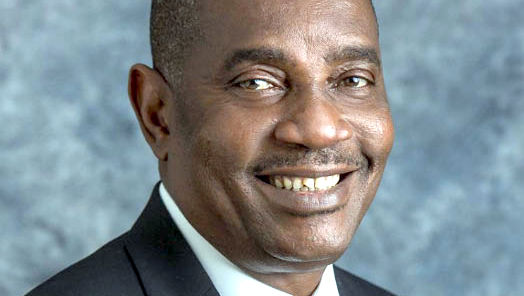He was baked in the oven of the Ahmadu Bello University, Zaria radical school of thought, drawing inspiration from the likes of Femi Odekunle, Esko Toyo, Bala Usman, and Patrick Wilmot all blessed memories but Wilmot. Solomon Arase was a product of these intellectual Marxists who were teaching what they were not paid to teach. It was from these men that Solomon Arase drew his radicalism that eventually ironed him into an incubated intellectual that he has come to be.
Arase‘s intellectual formation took place at the Ahmadu Bello University (ABU) in Zaria, Nigeria. It was there that he encountered these radical intellectuals who taught him about the social, economic, and political issues plaguing Nigeria. Their teachings inspired him to view law enforcement not just as a tool for maintaining order but also as a means of advancing social justice.
Arase‘s radical perspective on law enforcement is evident in his approach to policing. During his tenure as Inspector-General of Police, he introduced a number of reforms that catapulted the force into an enviable forte.
Born on June 21, 1956, Arase, a prominent Nigerian police officer and lawyer who served as the Inspector General of Police (IGP) of Nigeria from 2015 to 2016. He is an alumnus of Ahmadu Bello University, Zaria, where he obtained a degree in Political Science. He later went on to study Law at the University of Benin, Ekpoma.
Arase joined the Nigerian Police Force in 1981 as a Cadet Assistant Superintendent of Police (ASP). He rose through the ranks, occupying various positions of responsibility within the force, including Deputy Commissioner of Police (DCP) in Ekiti State and Commissioner of Police (CP) in Enugu State.
One of Arase‘s notable achievements as IGP was the establishment of the Intelligence Response Team (IRT) to combat high-profile crimes and criminality in the country. Arase also set up the Complaint Response Unit (CRU) to receive and address complaints of police misconduct from members of the public. The CRU provided a platform for citizens to report cases of police abuse, corruption, and extortion, among others. This initiative was a significant step towards addressing the issue of police brutality in Nigeria, which has been a longstanding concern for many Nigerians.
In addition to the IRT and CRU, Arase introduced other measures aimed at enhancing the professionalism and efficiency of the police force. For instance, he implemented a policy to strengthen the capacity of police officers in forensic investigation and intelligence gathering. He also launched a community policing initiative, which involved collaboration with local communities to identify and address security threats.
With the appointment of this intellectual cop as the Chairman of the Police Service Commission by President Muhammadu Buhari, it is expected that Arase would not leave stone unturn as he navigates with tested experience and expertise in policing and administration.
As the Chairman of the Police Service Commission, Arase will have a significant influence on the recruitment, promotion, and discipline of police officers. He will also be responsible for ensuring that the police force operates in accordance with the law and meets the needs of the community. Arase has previously spoken out against corruption and human rights abuses within the police force, and his appointment may signal a renewed commitment to addressing these issues.
One of Arase‘s priorities may be to improve the welfare and working conditions of police officers. In recent years, there have been widespread protests in Nigeria over police brutality and corruption, and many officers have complained about poor pay, inadequate equipment, and a lack of training. Arase may seek to address these issues in order to improve the morale and effectiveness of the police force.
Overall, Arase‘s appointment as Chairman of the Police Service Commission represents an opportunity for positive change in the Nigerian police force. However, it will be important to closely monitor his actions and ensure that he follows through on his promises to improve the police force and address the concerns of the Nigerian people.
However, As Solomon Arase takes over as Chairman of the Police Service Commission, there are several things he must guide against to ensure that his tenure is successful and that the Nigerian police force is able to operate effectively and fairly. Some of these things include:
Political interference: Arase must guard against political interference in the recruitment, promotion, and discipline of police officers. The police force should be free from political manipulation and should operate in accordance with the law.
Corruption: Arase must take steps to root out corruption within the police force. This may involve implementing measures to increase transparency and accountability, and ensuring that officers are held accountable for any corrupt activities.
Human rights abuses: Arase must ensure that police officers respect the human rights of all Nigerians. This means taking steps to prevent police brutality, extrajudicial killings, and other forms of abuse.
Inadequate training and resources: Arase must work to address the problem of inadequate training and resources for police officers. This may involve increasing funding for training programs, improving the equipment and facilities available to officers, and ensuring that officers are properly trained to carry out their duties.
Poor public perception: Arase must work to improve the public‘s perception of the police force. This may involve implementing community policing programs, increasing engagement with local communities, and taking steps to improve the behavior and conduct of police officers.
By guarding against these and other potential challenges, Arase can help to ensure that the Nigerian police force operates effectively and fairly, and that it is able to meet the needs of the Nigerian people.
Again, an alumnus of the great Ahmadu Bello University is on the saddle of providing purposeful leadership, a virtue graduates of the institution are known for – little wonder, they are proudly referred as being Naturally Ahead…



